Unlocking the Genetic Code: How Genes Impact Weight Issues
As an Amazon affiliate I earn from qualifying purchases at no extra cost to you.
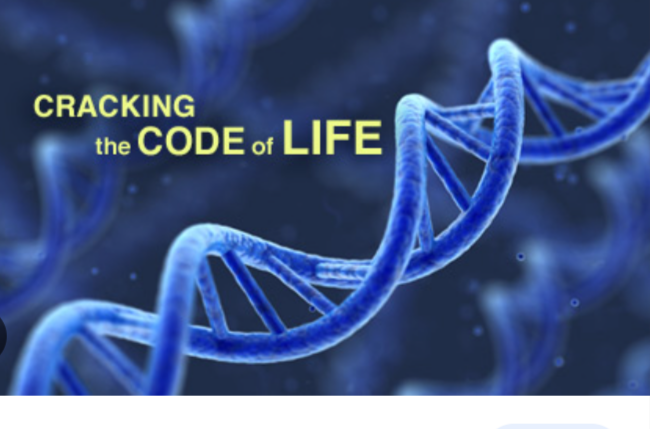
Have you ever wondered about the impact of genes on weight loss and why some people seem to effortlessly shed pounds while others struggle to maintain a healthy weight? The answer lies within our genes.
The Impact of Genes on Weight Loss
Let’s discover the impact of genes on weight loss once and for all. Genes are DNA segments that contain instructions for the building and functioning of living organisms. They determine inherited traits and characteristics. Just so you know, based on your genetic makeup, you could be predisposed to obesity.
Genes also determine eye color, height, and susceptibility to certain diseases. Genes are the fundamental units of heredity and are passed down from parents to their offspring. Thus, individuals don’t have a direct choice in their genes.
In this article, we will explore genetics and weight uncovering how genes affect both weight loss and weight gain. By understanding the role of gene expression and learning how to turn genes on and off, we unlock valuable insights and strategies for achieving a healthier lifestyle.
Join us as we unravel the mysteries of genetics and empower ourselves to take control of our weight destiny. Uncovering your DNA and genetic make-up is easier than you know. Let’s get you all of the information that you need.
The Impact of Genes and Weight Loss: A Complex Relationship
When someone struggles to lose weight, they may immediately blame themselves. It’s easy to be hard on ourselves when we see the pounds on the scale lingering. However, it’s important to realize that weight stagnancy and weight gain may have more to do with our inherent genetics.
Genes play a direct role in body functions. These include metabolism speed, fat storage and distribution, and appetite regulation. This means that if you have specific genetic factors that alter your calorie burning speed, it’s more common to have weight issues.
For example, research shows that the FTO gene is associated with increased obesity risk and weight loss difficulty. In fact, it’s thought that while environmental and societal factors also contribute to weight gain, the FTO gene may be responsible for up to 40 to 90 percent of diversity in body mass index across the population.
Similarly, the PPARG gene correlates to increased obesity due to difficulty in burning excess fat, particularly during physical activity. Thus, while one person may burn more fat while participating in aerobic or muscle building exercises, another may struggle.
By combining with healthy habits, individuals can optimize their weight loss journey for improved long-term success.
How Genes Affect Weight Loss
With the expansion of scientific research on obesity, there is expanding knowledge about how genes affect weight loss. There are specific genes associated with weight loss complications. For example, the ADIPOQ gene encodes adiponectin, a hormone regulating metabolism and insulin sensitivity.
When variations of this gene occur randomly, it leads to increased body weight and poor response to fat loss through exercise interventions. This gene variation is passed down through generations, leading to family obesity.
Another gene linked to weight loss difficulties is ADRB2, which alters your body’s response to stress and physical activity. With variations, people can experience a downgrade in fat loss and a greater body mass index.
Understanding these genetic factors can aid in personalized weight loss strategies and promote more effective and targeted interventions.
How Genes Affect Weight Gain
The cause of gain can be complicated to pinpoint. This is because there are many different reasons that a person may gain weight. While overeating and lack of exercise can be one contribution, it may not paint the whole picture. Hormone changes, increased stress, and medication alterations can all affect weight gain. However, analyzing how genes affect weight gain is essential to get a complete picture.
Specific genes can make a person prone to fat gain. The LEPR gene is one that typically regulates appetite and energy balance. When there’s a variation in this gene, people can experience increased hunger levels and decreased weight loss success.
Similarly, the MC4R gene impacts appetite regulation and how susceptible someone is to weight gain. A variant gene can therefore lead to obesity. Genetic factors also influence how efficiently the body metabolizes and stores fat.
Understanding these genetic influences can help individuals make informed decisions about their lifestyle, such as adopting healthier eating habits and incorporating regular physical activity to mitigate genetic predispositions to weight gain.
Turning Genes On and Off: Taking Control of Your Genetic Destiny
Even if you were cursed with genes that predispose you to weight gain and difficulty with weight loss, you are not doomed. There are ways to take control of your genetic destiny and reverse your weight gain. You can take influence how genes behave through with the following tips:
- ● Eat a balanced diet to promote healthy calorie intake.
- ● Exercise regularly and sleep well to encourage positive gene expression.
- ● Manage stress with practices such as meditation, deep breathing, or yoga.
- ● Avoid exposure to harmful substances like tobacco smoke, excessive alcohol consumption, and environmental toxins.
- ● Keep a close support group to encourage positive personal growth.
By following the above tips, you have the power to shape your genetic destiny and optimize your gene expression for improved well-being.
Empowerment through Genetic Knowledge
There is strength in knowledge. This is especially true when it comes to your body. Knowing how your body, influenced by your genes, stores fat, responds to exercise, and metabolizes food can revolutionize your weight loss story. Further, your genetic performance can guide you in selecting an appropriate diet and exercise regimen to lose weight and keep fat off for the long run. Thus, by harnessing the power of genetic knowledge, you can take charge of your weight loss journey and increase the likelihood of achieving long-lasting success.
Final Take Home
Harnessing the power of genetic knowledge in weight loss empowers individuals to personalize their approach, make informed decisions, and increase the chances of achieving sustainable results. Understanding genetic factors related to metabolism, fat storage, and exercise response can guide the selection of appropriate strategies for each individual. However, it’s important to remember that genetics is just one piece of the puzzle, and lifestyle choices and behavior modifications still play a crucial role in weight loss success.
By combining genetic insights with healthy habits, you can take control of your weight and embark on a transformative journey towards improved health and well-being. The journey may be challenging, but you can overcome whatever obstacles are in your way.
Rachele, Founder
mybluegenes.com
rachele@mybluegenes.com
References
- Frayling TM. “Genome-wide association studies provide new insights into type 2 diabetes aetiology.” Nature Reviews Genetics. 2007 Oct;8(10):657-62. doi: 10.1038/nrg2178. Available at: https://www.ncbi.nlm.nih.gov/pmc/articles/PMC2906751/
- GB HealthWatch. “ADIPOQ Gene and Weight Loss.” Available at: https://www.gbhealthwatch.com/HotTopic-ADIPOQ-Weight-Loss.php#:~:text=The ADIPOQ gene instructs fat,so, it promotes energy consumption.
- Geller F, Reichwald K, Dempfle A, et al. “Melanocortin-4 receptor gene variant I103 is negatively associated with obesity.” American Journal of Human Genetics. 2004 Apr;74(4):572-81. doi: 10.1086/383092. Available at:

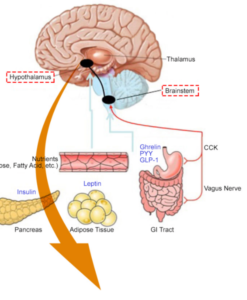
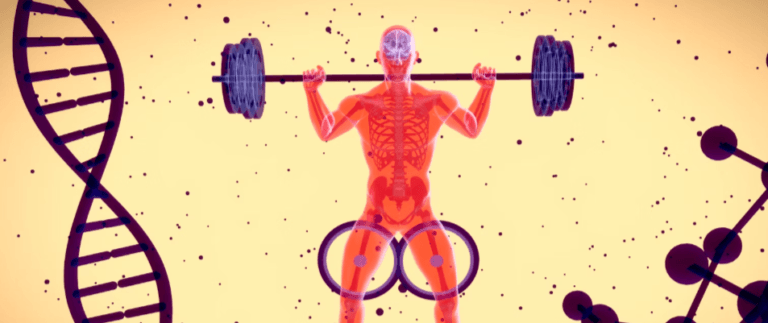



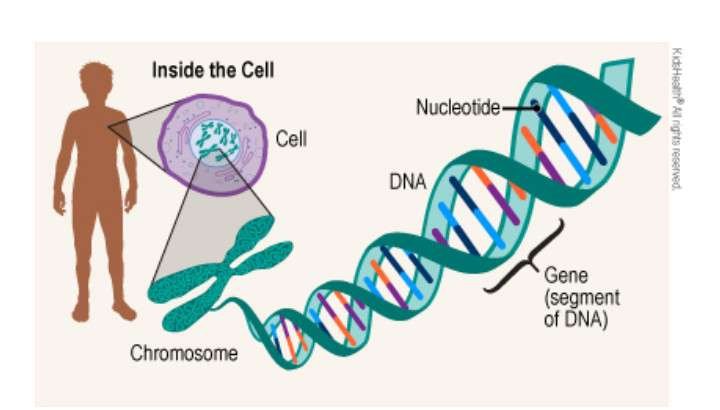
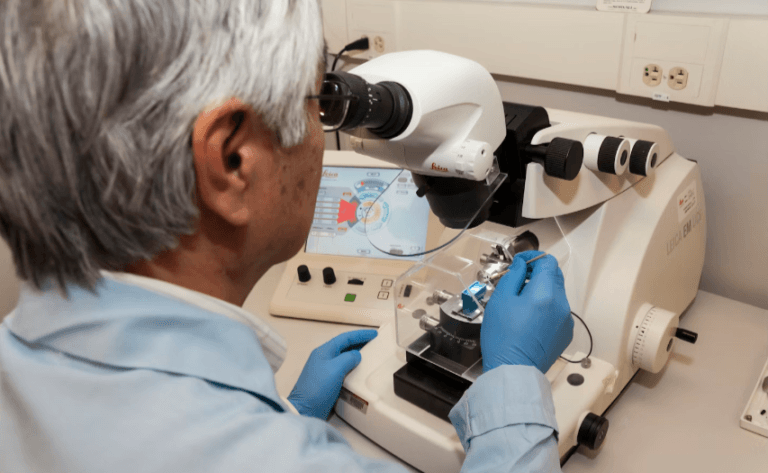
This is a very interesting and informative article on the relationship between your genes, and any weight issues that one might have. I first learnt about the role that genes can play in picking up weight, or struggling to lose weight, when I was a teenager.
My cousins are bigger than me and my sisters, although our moms are sisters, and they always moaned that it is more difficult for them to lose weight. We traced it back to their dad’s side of the family, who came from a much bigger-boned family than my dad.
Once one understands that genes can affect your weight, it is easier to accept your size. But at the same time, one can control your diet and lifestyle, to help prevent excessive weight gain. Thank you for sharing all the scientific evidence about the role between genes and weight.
Rachele
This is a great message about genes and it does mean that I have certain genes that come from my parents that can affect y height, weight and who I am. Never new some of these issues.
Scott
Hi Scott,
Thank you so much for stopping by to chime into my article related to how genes impact weight issues. Genetics have always been a huge passion of mine and it is a very interesting field of study. When unlocking the code you will discovery the reasons of why and how we came to exist. Did you know that some of us have a gene that determines weight. It is actually called the “fat gene.” The cool thing is that this gene can be turned on and off.
Rachele
Hi there Line,
Thank so much for taking time out of your busy schedule to stop in, read, and make generous comments on my article “Unlocking the Genetic Code.” What I really love about genetics is that it can tell us a plethora of details about who we are and why we are predisposed to certain things such as weight issues. I am impressed by the experience that you, your sister, your cousins, and your auntie’s.
That must have been an amazing experience to trace your genes back to your dad’s side of the family. This is powerful knowledge to understand. This was an intergenerational gold mine.
I totally agree with you. It becomes much easier to accept our size once we have an understanding of our genetic code. Then all of the pieces begin to fall together. Your response has made my day.
Enjoy a fantastic week,
Rachele
Hi Rachele,
I learned quite a lot about my family genetics. This is invaluable information and has piqued my interest to learn more.
Nick
Hi Nick,
I am impressed that you found my article related to genetics useful. It is, indeed, a complex subject. I will be doing more posts on this topic, so stay tuned. The more we know about our genetics, the more we know about who we are and how we came into existence.
Rachele,
Thank for providing this incredible information about how our bodies have ability to unlock our genetic code.This information is mind-boggling. I feel that I have a lot more control, in terms of my diet and lifestyle.
JB
Hi there JB,
While studying to become a family therapist, I had the unique opportunity to learn about genetics. In one assignment, we had to create a genogram from scratch. This is where you search your family tree to find intergenerational attitudes, behaviors and patterns that previous family members, parents in particular, pass down from generation to generation. This was a life-changing experiment. I had the opportunity to see how we are impacted by genetics, in a good or bad way. This experience changes the way we perceive life in general.
Rachele